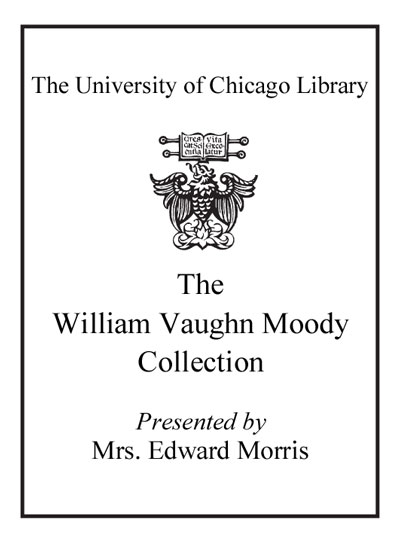Ralph Ellison's invisible theology /
Saved in:
| Author / Creator: | Harriss, M. Cooper, author. |
|---|---|
| Imprint: | New York : New York University Press, [2017] |
| Description: | xi, 265 pages ; 24 cm. |
| Language: | English |
| Series: | North American religions North American religions. |
| Subject: | |
| Format: | Print Book |
| URL for this record: | http://pi.lib.uchicago.edu/1001/cat/bib/11040469 |
MARC
| LEADER | 00000pam a2200000 i 4500 | ||
|---|---|---|---|
| 001 | 11040469 | ||
| 003 | ICU | ||
| 005 | 20170517094135.0 | ||
| 008 | 161122s2017 nyu b 001 0 eng | ||
| 010 | |a 2016050138 | ||
| 040 | |a DLC |b eng |e rda |c DLC |d YDX |d BDX |d OCLCO |d OCLCQ |d ERASA |d OCLCF |d VKC |d NhCcYBP | ||
| 020 | |a 9781479823017 |q hardcover ; |q alkaline paper | ||
| 020 | |a 1479823015 |q hardcover ; |q alkaline paper | ||
| 035 | |a (OCoLC)961204090 | ||
| 042 | |a pcc | ||
| 050 | 0 | 0 | |a PS3555.L625 |b I53524 2017 |
| 082 | 0 | 0 | |a 813/.54 |2 23 |
| 100 | 1 | |a Harriss, M. Cooper, |e author. |0 http://id.loc.gov/authorities/names/n2016063850 |1 http://viaf.org/viaf/305259529 | |
| 245 | 1 | 0 | |a Ralph Ellison's invisible theology / |c M. Cooper Harriss. |
| 264 | 1 | |a New York : |b New York University Press, |c [2017] | |
| 300 | |a xi, 265 pages ; |c 24 cm. | ||
| 336 | |a text |b txt |2 rdacontent |0 http://id.loc.gov/vocabulary/contentTypes/txt | ||
| 337 | |a unmediated |b n |2 rdamedia |0 http://id.loc.gov/vocabulary/mediaTypes/n | ||
| 338 | |a volume |b nc |2 rdacarrier |0 http://id.loc.gov/vocabulary/carriers/nc | ||
| 490 | 1 | |a North American religions | |
| 504 | |a Includes bibliographical references and index. | ||
| 505 | 0 | |a Ways of looking at an Invisible Man -- From Harlem Renaissance To Harlem apocalypse: just representations and the epistemology of race -- 1952: Invisible Man's theological occasion -- Above the veil: Nathan A. Scott Jr. and the theological apprenticeship of Ralph Ellison -- Wrestling Proteus in the new dispensation: Civil Rights, civil religion, and one blues invisible -- Conceived in sin: Ralph Ellison's nineteenth century -- More ways of looking at an Invisible Man. | |
| 520 | 8 | |a Ralph Ellison's 1952 novel Invisible Man provides an unforgettable metaphor for what it means to be disregarded in society. While the term "invisibility" has become shorthand for all forms of marginalization, Ellison was primarily concerned with racial identity. M. Cooper Harriss argues that religion, too, remains relatively invisible within discussions of race and seeks to correct this through a close study of Ralph Ellison's work. Harriss examines the religious and theological dimensions of Ralph Ellison's concept of race through his evocative metaphor for the experience of blackness in America, and with an eye to uncovering previously unrecognized religious dynamics in Ellison's life and work. Blending religious studies and theology, race theory, and fresh readings of African-American culture, Harriss draws on Ellison to create the concept of an "invisible theology," and uses this concept as a basis for discussing religion and racial identity in contemporary American life. This is the first book to focus on Ellison as a religious figure, and on the religious dynamics of his work. Harriss brings to light Ellison's close friendship with theologian and literary critic Nathan A. Scott, Jr., and places Ellison in context with such legendary religious figures as Reinhold and Richard Niebuhr, Paul Tillich and Martin Luther King, Jr. He argues that historical legacies of invisible theology help us make sense of more recent issues like drone warfare and Clint Eastwood's empty chair. | |
| 600 | 1 | 0 | |a Ellison, Ralph. |t Invisible man. |0 http://id.loc.gov/authorities/names/no2006009070 |1 http://viaf.org/viaf/176059326 |
| 650 | 0 | |a Theology in literature. |0 http://id.loc.gov/authorities/subjects/sh94009148 | |
| 630 | 0 | 7 | |a Invisible man (Ellison, Ralph) |2 fast |0 http://id.worldcat.org/fast/01356600 |
| 650 | 7 | |a Theology in literature. |2 fast |0 (OCoLC)fst01149615 | |
| 830 | 0 | |a North American religions. |0 http://id.loc.gov/authorities/names/no2012147250 | |
| 903 | |a HeVa | ||
| 929 | |a cat | ||
| 999 | f | f | |i b6458dba-afa1-54f1-9693-d9e004703cc5 |s 31a20d33-f12f-5dc5-a425-be5b1d418673 |
| 928 | |t Library of Congress classification |a PS3555.L625 I53524 2017 |l JRL |c JRL-Gen |i 9533854 | ||
| 927 | |t Library of Congress classification |a PS3555.L625 I53524 2017 |l JRL |c JRL-Gen |e AMAU |b 113710348 |i 9782541 | ||

